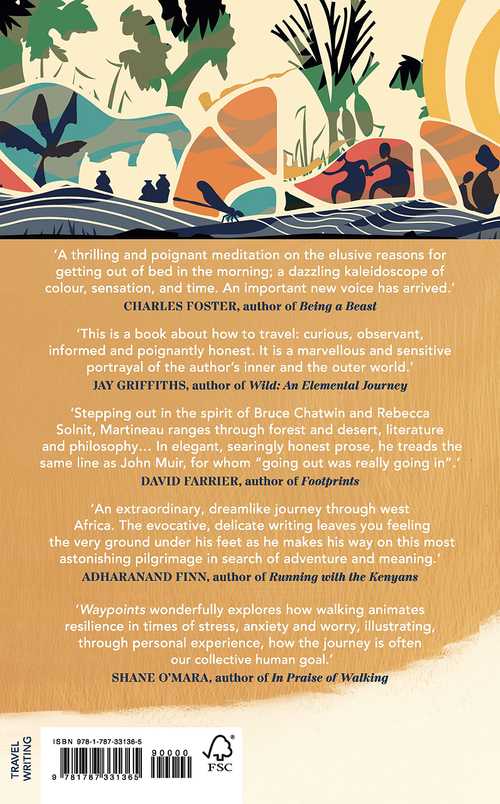Waypoints: A Journey on Foot
Robert Martineau
November 19, 2022
I’m unsure how I feel about Waypoints. It’s really interesting, the story of an immense journey taken on foot through Ghana, Togo and Benin in West Africa; detailing the fascinating history of these landscapes and it’s people, the psychology of walking and pilgrimage.
I think his descriptions are wonderful, he really captured the rhythm of walking and his connection with the changing landscape, from rainforest to desert, mountain to sea. I learnt so much from his exploration of other long distance walkers throughout history, and his deep dives into the traditional and cultural practices he witnesses in the towns and villages he passes through. I particularly liked that he found inspiration in stories by both male and female historical walkers, sharing myths, legends and biographies about some incredible people from different countries across the centuries.
What Thoreau found in the the forest, Nietzsche in the mountains, came to Solnit in the dusts of the Californian desert. ‘To me these big spaces mean freedom,’ she wrote, ‘freedom for the unconscious activity of the body and the conscious activity of the mind, places where walking hits a steady beat that seems to be the pulse of time itself.
The book is prefaced with a prologue steeped in insecurity about writing the book - another white man exploring Africa, after all. I think my uneasiness lies not in these insecurities - indeed it’s a tale well worth telling, and one that brings to light in skilled storytelling the atrocities of the slave trade - using lived experience and direct extracts from remnants of writings by those forced into slavery. My issue lies more in the overshadowing sense of repression Martineau exudes. He writes very little of his feelings, and I felt a sense of loss finishing the book without a more obvious arc of lessons learnt or memories unraveled, or even an epilogue explaining how the walk shaped his future path. Arguably, there is an arc of character development that is more subtle, a slow revealing of something close to childhood grief - but I find myself frustrated, scrabbling at the edges for more.
Overall, I really do think it’s a book worth reading - I’m holding out hope that perhaps he’ll write another to explore his inner journey as well as the physical distance traveled.
